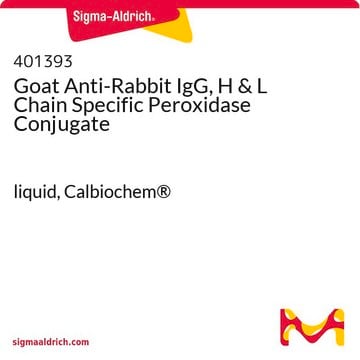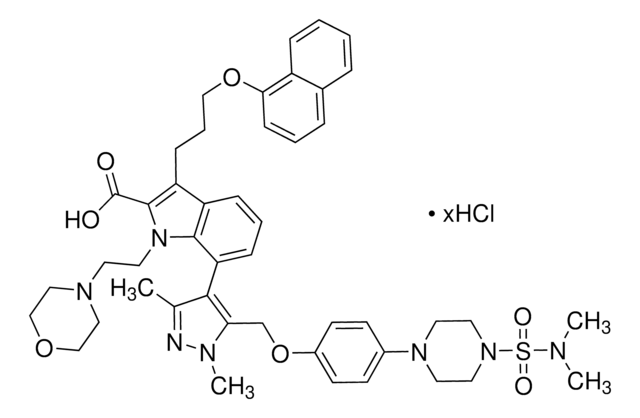551476
Q-VD-OPh, Non-O-methylated
≥90% (HPLC), liquid, Caspase inhibitor, Calbiochem®
Sinónimos:
InSolution Q-VD-OPh, Non-O-methylated, N-(2-Quinolyl)valyl-aspartyl-(2,6-difluorophenoxy)methyl Ketone
About This Item
Productos recomendados
product name
Q-VD-OPh, Non-O-methylated, InSolution, ≥90%, irreversible broad-spectrum inhibitor of caspases
Nivel de calidad
Análisis
≥90% (HPLC)
formulario
liquid
fabricante / nombre comercial
Calbiochem®
condiciones de almacenamiento
OK to freeze
desiccated (hygroscopic)
protect from light
Condiciones de envío
wet ice
temp. de almacenamiento
−20°C
Descripción general
Acciones bioquímicas o fisiológicas
caspase-1
Envase
Advertencia
Secuencia
Forma física
Reconstitución
Otras notas
Caserta, T.M., et al. 2003. Apoptosis8, 345.
Rebbaa, A., et al. 2003. Oncogene22, 2805.
Información legal
Código de clase de almacenamiento
10 - Combustible liquids
Clase de riesgo para el agua (WGK)
WGK 1
Punto de inflamabilidad (°F)
188.6 °F - closed cup - (Dimethylsulfoxide)
Punto de inflamabilidad (°C)
87 °C - closed cup - (Dimethylsulfoxide)
Certificados de análisis (COA)
Busque Certificados de análisis (COA) introduciendo el número de lote del producto. Los números de lote se encuentran en la etiqueta del producto después de las palabras «Lot» o «Batch»
¿Ya tiene este producto?
Encuentre la documentación para los productos que ha comprado recientemente en la Biblioteca de documentos.
Nuestro equipo de científicos tiene experiencia en todas las áreas de investigación: Ciencias de la vida, Ciencia de los materiales, Síntesis química, Cromatografía, Analítica y muchas otras.
Póngase en contacto con el Servicio técnico








